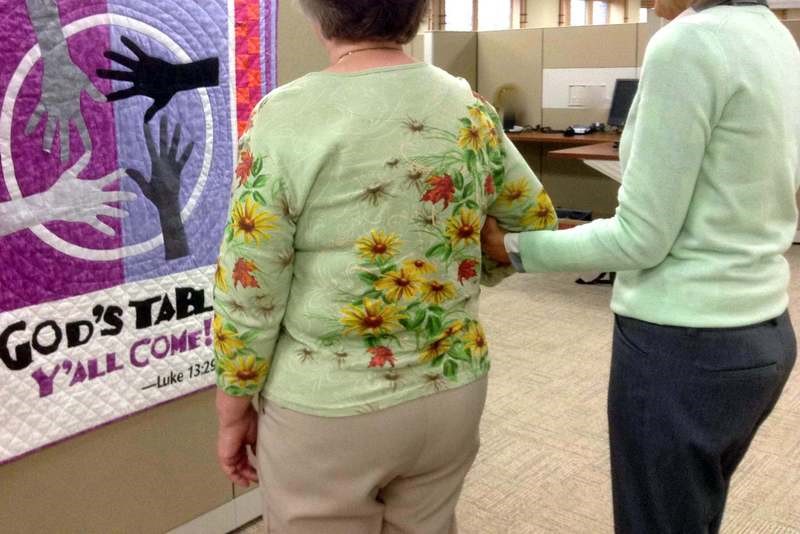Walking by Faith: Tips for assisting someone who is visually impaired
For me the phrase “walking by faith” has taken on a new meaning recently. Although I have been legally blind since birth, it has only been in the last sixteen months that I have lost all of my sight. My blindness has taught me a great deal about not relying on what I see and placing a lot of trust in others.
For over ten years now, my wife and I have served as the pastor couple at a small country church in Pennsylvania. This tightly knit community has been very supportive of me, especially the sixty-some people who call the Marsh Creek church their home. Although I have been aware of barriers and attitudes toward those with visual disabilities, it has only been since my total loss of sight that I have gained a better understanding of the challenges that face millions of people who have some form of vision loss, whether partial or total.
Were it not for God’s faithfulness and provision, I could not now continue serving in my role as pastor.
God has provided me with great assistive technology, like screen readers, and a group of helpful understanding church members who are willing to learn about my blindness and not allow it to intimidate them.
I would like to share a few suggestions about how you can be helpful to someone who is visually impaired.
Ask yourself this question: What is my reaction when I encounter a person who is visually impaired or blind? Do I become shy, talk really loud, or dumb down my speech? If so, don’t feel bad. These are common reactions when people come face to face, especially the first time, with someone who is visually challenged.
So how should one respond when meeting a person with a visual impairment?
For starters, treat us just like anyone else. Blind and visually impaired individuals come from all walks of life, all areas of the world, and work or serve in many different capacities. If an individual who is visually challenged enters your place of worship, greet them and talk with them as you would any other visitor.
Then ask a very important question. “What can I do to assist you or how can I help you?”
As with any other disability, there are numerous degrees of sight loss. A totally blind person may or may not have light perception. A person with sight loss may have great center vision but no side perception. Since levels of sight loss vary, the degree of assistance needed will vary as well.
Allow the individual to tell you what, if any, assistance they need. Then gently guide the person to their requested destination, if requested.
You can do this by either taking the elbow of the person or having them take your elbow or arm. This manner of assistance is the most widely accepted among blind people and offers a great deal of assistance without making the person feel inferior or helpless.
Do not (as an aide once did with me at a hospital) push the person in the back with the palm of your hand. I was glad there was no flight of stairs nearby. My wife and I still laugh at this incident today, and I fully realize that the aide was just being helpful in his own, untrained manner.
If the person you are assisting has a guide dog, you may want to modify your way of helping and allow the service animal to continue to perform the majority of assistance. Remember the best thing you can do is to ask what you can do to help.
Just as you would with any other visitor to your church, acquaint the visually challenged person with the layout of your house of worship. If necessary, orient them to the front of the room, platform area, restrooms and so on. A totally blind individual will want to be sure he or she is facing the same direction as others when the service is ready to begin. Will songs be sung from a hymnal or from a wall mounted screen? Is there a Bible in the pew or under the seat? While a person may not be able to access all these items, convey this information as you might to any other visitor.
Finally, don’t be afraid of your words. If you say something like, ”Did you see our ….” don’t apologize or get flustered over the words. This is a common expression that is used all the time, and most visually impaired people are not offended, even though they may not have seen the item in question.
I often joke with my congregation that if they want to throw something out that others may not want to discard, they should call me, for I can honestly tell others, “I didn’t see a thing.”

Dan Longmore is pastor of Marsh Creek Brethren in Christ Church located near Howard, Pennsylvania. He and his wife Marty have been married for over 28 years and have served in church and radio ministry for most of their married lives. Marty and Dan produce a daily Christian music broadcast and other duties for WRGN FM in northeastern Pennsylvania and on the web. You can reach Dan at marshcreekbic@centurylink.net.




